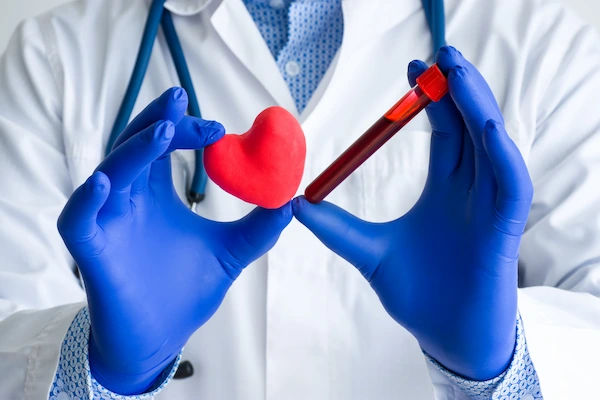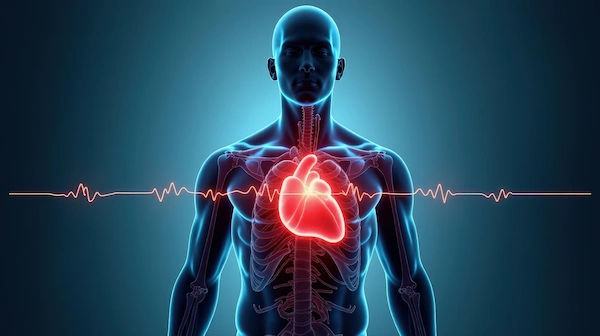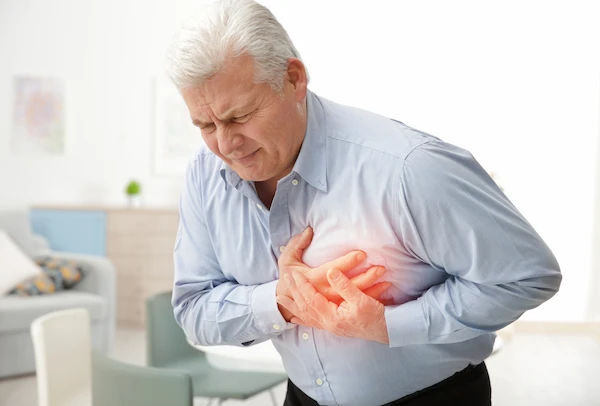- male
- 50 Years
- 10/05/2022
How is heart affected in diabetes?
Answered by 1 Apollo Doctors
With time, raised blood sugar levels can damage the blood vessels and nerves that control the heart. Additionally, people with diabetes are also more likely to have other conditions that raise the risk for heart disease such as high blood pressure and deranged cholesterol or triglyceride levels.
Dr. Dhankecha Suggests...
Consult a Cardiologist
Answered 04/07/2025
0
0


Ask Apollo
AI powered Health Chatbot
-
Impact of Diabetes on Heart Health
High blood sugar levels can damage blood vessels and the heart over time. -
Increased Risk of Coronary Artery Disease
Diabetes accelerates plaque buildup in arteries, leading to blockages and heart attacks. -
Effects on Heart Muscle and Function
Diabetic cardiomyopathy can cause the heart muscle to become stiff or weak, affecting its pumping ability. -
Risk of Heart Failure and Arrhythmias
Diabetes increases the chances of heart failure and irregular heartbeats. -
Importance of Managing Diabetes for Heart Health
Emphasize blood sugar control, lifestyle changes, and medications to reduce heart-related complications. -
Relevant Medical Specialties and Tests
Involvement of cardiology and endocrinology; common tests include ECG, echocardiogram, and lipid profile. -
Practical Advice for a 50-Year-Old Male
Focus on a heart-healthy diet, regular exercise, routine check-ups, and medication adherence to protect heart health.
Recommended next steps
Consult a Cardiologist or Take a LIPID SCREEN Test
Answered 20/08/2025
0
0
More Cardiology Health Queries
View allCan a heart stent be taken out without needing bypass surgery I'm a bit worried about this and want to understand if it's possible or what the options are
Once a stent is placed, it isn’t usually removed; bypass is only considered if stent fails or blockage recurs.
Answered by 1 Apollo Doctors
I've been experiencing heart palpitations, shortness of breath, and feeling lightheaded since Sunday. I've also gained a bit of weight and recently had an argument with my husband. I have PCOS and I'm currently taking metformin. Could these symptoms be related to my condition or medication? Should I be concerned?
It sounds like you may be experiencing symptoms of anxiety or a possible cardiac issue. Given your history of PCOS and current medication, metformin, it is important to consider any potential interactions. I recommend you to consult with a doctor for further evaluation and management. In the meantime, to help alleviate your symptoms, you can try taking a beta-blocker such as Metoprolol at a low dose of 25mg once daily. Additionally, practicing stress-reducing techniques such as deep breathing exercises or mindfulness meditation may also be beneficial. Remember to prioritize self-care and seek medical attention if your symptoms worsen or persist.
Answered by 1 Apollo Doctors
Can you explain the risks and complications of hymenoplasty surgery like is it generally safe or could it be life-threatening I'm worried about things like severe blood loss during the procedure
Infection: Improper post-surgical care can lead to infections. Bleeding: Minor bleeding is normal, but excessive bleeding should be addressed immediately. Scarring: Rarely, excessive scarring may occur, affecting the final result.
Answered by 1 Apollo Doctors
Disclaimer: Answers on Apollo 247 are not intended to replace your doctor advice. Always seek help of a professional doctor in case of an medical emergency or ailment.



.webp)

